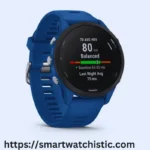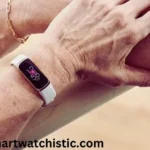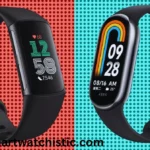Smart Ring Vs Smartwatch: Which One Should You Choose?
Wellness trackers are the most powerful tools and give us access to data about our wellbeing and give us the power to make decisions based on that data. These technologies help us communicate the truth.
Physical activity levels, blood pressure and sleep patterns are the wearable devices that monitor multiple health parameters .Due to this, these become essential tools for anyone who wants to lead a healthy life.
Two cutting-edge gadgets with a plethora of capabilities for tracking exercise and health are smartwatches and smart rings. Because each of them has distinct qualities, the decision between them primarily comes down to personal taste.
Should You Use A Smart Ring Or A Smart Watch?
A number of aspects, including functionality, comfort, accuracy, and style, are taken into consideration when comparing smart watches and smart rings .For example, low-profile, small technology is appealing when it comes to smart rings.
Many versions come with all the necessary health tracking functions, including activity tracking, sleep tracking, and heart rate monitoring, conveniently packaged into a little finger-sized device. For individuals looking for a health tracking device with a simple design, they are a desirable alternative due to their discrete format.
On the other hand, because of their bigger size, smart watches typically include more extensive health and fitness tracking features. GPS, music control, smartphone notifications, and other in-depth health insights are frequently included. But doing so has the drawback of making it more obvious and possibly less pleasant for certain people.
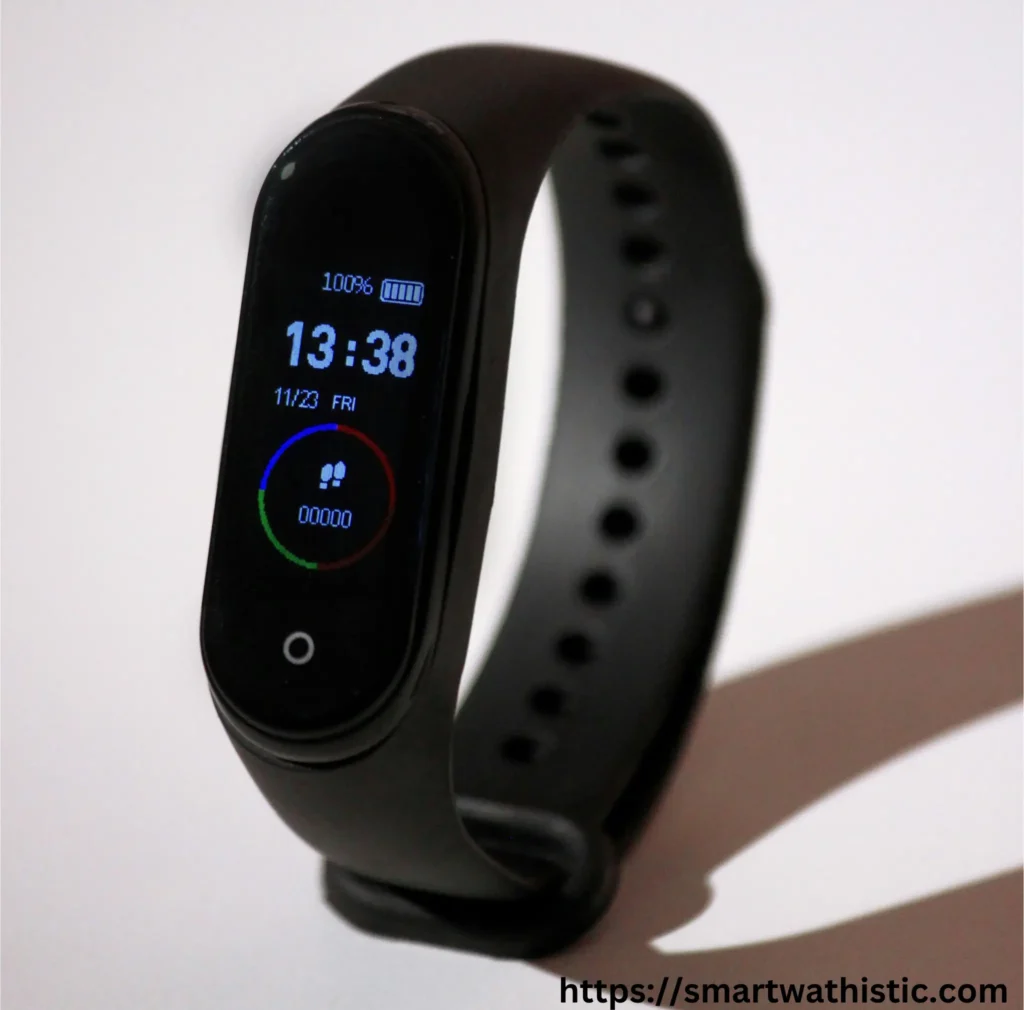
Smart Ring Vs Smartwatch Pros And Cons:
Although they are both rather popular in the market, smart watches and rings have advantages and disadvantages of their own. Let’s examine the benefits and limitations of each of these gadgets.
Smart Ring Pros:
- Comfort: Because they are compact and comfortable to wear, smart rings offer a handy alternative to carrying around a large gadget to access technology.
- Secrecy: In contrast to other wearable technology, smart rings are frequently made to be unnoticeable and discrete, which can be preferred in some circumstances.
- Monitoring fitness: Fitness tracking features are included into many smart rings, and they can be a handy tool to keep an eye on fitness and health indicators.
- Mobile money transfers: Some smart rings come equipped with NFC technology, enabling mobile payments at participating merchants.
- Protection: Some smart rings can be secured and user data protected with biometric authentication capabilities like fingerprint scanning.
Smart Ring cons:
- Restricted functionality: When compared to larger wearables like smartwatches, smart rings usually have less capability because of their compact size.
- Restricted visibility: Many smart rings have a tiny display or none at all, which makes using some capabilities challenging.
- Life of the battery: Smart rings frequently have a short battery life because of their compact size, which can be a drawback for customers who wish to wear their rings all day.
- Cost: Especially when compared to other wearable technology like fitness trackers, smart rings can be pricey.
- Compatibility: Certain smart rings might only work with specific smartphones or mobile operating systems, which would limit some users’ ability to utilize them.
The needs and preferences of the user will choose the smart ring to choose. Although unobtrusive and convenient, smart rings might not be for users who need a larger display or a greater variety of features. Before making a purchase, it’s crucial to thoroughly weigh the benefits and drawbacks of smart rings.
Smart Watch Pros:
- Comprehensive Fitness Tracking :Heart rate monitoring, sleep tracking, and workout analysis are just a few of the capabilities that smart watches usually include. Those who want to keep up an active lifestyle may find this extensive material to be helpful.
- Convenience: With a smartwatch, you don’t need to take your phone out of your pocket or purse to access information or carry out actions like sending and receiving messages, making and taking calls, or controlling music playback.
- Customization: Smartwatches can be made to match your unique taste and style thanks to the wide selection of watch faces and bands available.
- Navigation: You can use some GPS-enabled smart watches to navigate without needing a traditional map or your phone while on a trek or run. They even have compass features and maps!
- Contactless payments: In the era of advanced technology, we may now make card-less purchases without using credit cards or even our phones. We can pay for the majority of goods while we’re out and about with just a flick of the wrist.
Smart watch Cons:
- Limited battery life: Smartwatches typically have a limited battery life, lasting anywhere from one to two days. This means that you will need to charge your watch regularly.
- Limited functionality: Smartwatches are not as powerful as smartphones, and some apps and features may not work as well on a watch as they do on a phone.
- Price: Smartwatches can be expensive, especially the high-end models.
- Privacy concerns: Smartwatches can collect and store a lot of personal information, such as your location, contacts, and browsing history. This can raise privacy concerns for some people.
- Distraction: Smartwatches can be a distraction, particularly for young users. They could become engrossed in games or notifications and fail to notice the passing of time or their environment.
Smart Rings and Smartwatches In-depth Comparison
Features:
There are differences in the construction of smartwatches and smart rings. But there is one thing in common amongst them: sensors. Monitoring a user’s biometric information is the responsibility of these sensors.
Sensors like accelerometers, which measure linear acceleration, gyroscopes, which track rotations, and heart rate monitors are found in the majority of fitness and activity smart rings.
Put more simply, calorie burn is tracked using these sensors’ automatic detection of a range of physical activities, including running and walking.
Accuracy:
Due to the inherent architecture of their form factor, smart rings are typically more accurate than smartwatches. Because our fingers have so many arteries and capillaries, smart rings can gather data more precisely than those worn on the wrist.
For the same reason, instead of using the wrist to take blood pressure and pulse, doctors use their fingers.
Comfort:
This isn’t really a competition because smart rings are lightweight by design. The design of the smart ring is vital to take into account if you plan to use an activity tracker for extended periods of time, though, as some models are bulky and unpleasant despite being substantially lighter.
For those who want to track their sleep using an activity tracker, wrist-worn devices might be constrictive and not very comfortable.
Durability:
The differences between smartwatches and smart rings are mostly in the build quality. The wearable quality as stated by the manufacturer is what matters most.
In all honesty, the longevity of the displays of smartwatches and smart bands is greater than that of their bands. The fact that they may be readily replaced is a plus.
Privacy:
There is a significant difference in privacy between these two wearables. Wearing smart rings won’t expose your personal information because they frequently lack a loud speaker and display.
It’s considerably simpler for other people to view the screen and/or hear voice instructions on smartwatches. Other than that, how the creators handle your personal data will determine how private it is.
Battery:
Generally speaking, smart rings have longer batteries than smartwatches. The majority of fitness and activity tracking smart rings available on the market have a 7-day battery life, whereas the typical smartwatch has a maximum lifespan of 1-2 days.
It seems that the screen significantly affects how long a smartwatch’s battery lasts.
Pricing:
Smartwatches are frequently more expensive than smart rings since they can perform more and have more capabilities. The price of a good smartwatch with fitness and activity tracking ranges from $150 to $600, depending on the brand.
Concurrently, smart rings within the same category can be purchased for anywhere from $100 to $300. Whichever wearable device you choose, the most well-known brands will undoubtedly cost more.
When it comes to fitness and activity tracking, smart rings are superior to smartwatches only in terms of accuracy. Another fantastic feature that sets smart rings apart from smartwatches is their battery life.
Conclusion:
If greater data tracking and a display are what you’re searching for in a device, the smartwatch is a better option. But if you’re searching for a more compact, less noticeable, and reasonably priced gadget, the smart ring is a decent option. We hope that the information above has assisted you in selecting the ideal gadget for your needs.
How Does a Smart Ring Differ from a Smart Watch?
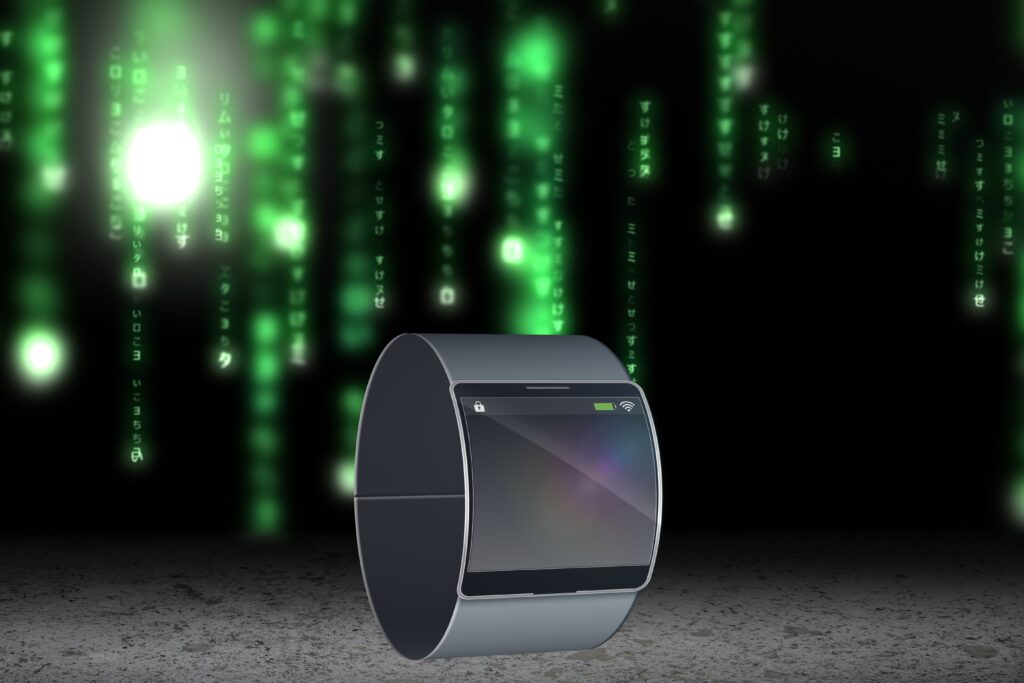
Form Factor:
Compared with a smartwatch, a smart ring is far more compact and unobtrusive. Worn on the finger, it complements your regular accessories without drawing attention to itself. An alternative is a smartwatch, which is larger and worn on the wrist. It is generally more comfortable to wear smart rings, especially while you are sleeping.
Display:
More information may be presented at once on a smartwatch thanks to its larger display. It frequently incorporates a touchscreen interface, which facilitates interaction with a variety of features. A smart ring, on the other hand, typically lacks a display. Rather, it uses LED lights or vibrations to transmit data.
Fashion and Personalization:
Smartwatches are available in a variety of styles, so users can customize their watch faces, bands, and colors to fit their own tastes. They can be tailored to fit various ensembles or events and frequently resemble conventional timepieces.
Even with fewer design options, smart rings nevertheless allow for some customization through the use of various materials and finishes.
Do Smart Rings Have More Accurate Sensors?
Smart timepieces, such as the Apple Watch, typically include larger, more sophisticated sensors, which can result in readings that are more accurate.
Certain smart rings, particularly those that track sleep, have received recognition for their accurate data, though. Since different models’ accuracy can differ, it’s important to do your homework and select a gadget with a solid reputation for dependability.
Unique Features:
Smart Rings: Companies like boAt provide Smart Touch Control, which lets you use simple touch controls to operate compatible gadgets.
Smartwatches: A few premium models come equipped with special functions such as ECG tracking, fall detection, and even call making capability without requiring a linked smartphone.
What to consider:
Usage: Keep in mind that using a lot of features, such as fitness monitoring or GPS, will quickly deplete the battery, especially on smartwatches.
Convenience: Consider the frequency at which you are willing to recharge your gadget. A smart ring would be a better choice if you don’t want to charge it every day.
Personal Style: Do you want your wearable technology to stand out or are you searching for something understated that fits in? Your decision between a wristwatch and a smart ring may be influenced by your own sense of style.
Occasion: Consider the location in which you plan to wear your gadget. While smartwatches can be more adaptable for daily wear, smart rings might be more suited for formal occasions.
Your Objectives for Fitness: Do you simply wish to monitor your sleep and steps as a casual exerciser? A clever ring might be sufficient. However, if you’re a fitness enthusiast looking for specific statistics, a smartwatch is the best option.
Your Budget: Determine how much you have to spend. In comparison to a smart ring, a simple wristwatch may provide more capabilities at a lower cost if you’re on a tight budget.
Your Current Devices: While both smartwatches and smart rings have wide compatibility, it’s a good idea to confirm that the particular model you’re interested in is compatible with the smartphone or other smart devices you currently own.
App Needs: A smartwatch might be a better option for you if you’re searching for a device with a lot of app integration. However, a smart ring might be a better option if you’re looking for features that are concentrated and don’t distract you from other apps.
